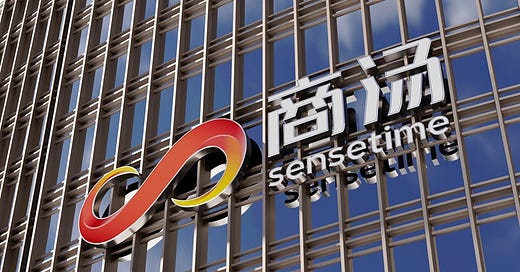Tech Insider: SenseTime Lays Off More Workers, XPeng’s Stock Soars on Didi Deal
Li Auto’s first pure EV to use CATL’s fast-charging batteries, BYD’s iPad-making arm buys Jabil China unit for $2.2 billion
AI software developer SenseTime has been gradually cutting positions while slowing hiring in recent months. Photo: VCG
AI specialist SenseTime is laying off workers again, sources say
Chinese artificial intelligence (AI) software developer SenseTime Group Inc. is again laying off workers as it struggles to stem a tide of red ink, current and former employees told Caixin.
SenseTime hasn’t been performing well and has been gradually cutting positions while slowing hiring in recent months, one former worker told Caixin. The company went through a massive round of layoffs last September, one current employee said.
One employee at the company’s Smart City Group said his department is now cutting around 10% to 15% of staff.
In a statement to Caixin on Sunday, SenseTime said that it has made strategic adjustments based on changes in the market and its own development.
Li Auto’s first pure EV to use CATL’s fast-charging batteries
Li Auto Inc. said that its first pure electric-vehicle (EV) will be equipped with Contemporary Amperex Technology Co. Ltd.’s (CATL) fast-charging batteries, made with technology that offers simpler manufacturing and packs in more power.
The Mega MPV will be powered by CATL’s Qilin batteries made with its cell-to-pack (CTP) technology, the EV-maker said Friday.
CTP technology is touted as being able to integrate battery cells straight into battery packs in efforts to enhance a car’s efficiency. The Qilin battery boosts volume utilization rate to 72% and has an energy density of up to 255 watt-hours per kilogram that can power an EV to run more than 1,000 kilometers on a single charge, according to CATL.
China’s XPeng soars after buying Didi unit to consolidate market
XPeng Inc.’s shares soared after it agreed to buy Didi Global Inc.’s smart-car development arm in a deal that both eliminates a potential competitor in the crowded EV market and gives it a tech-savvy partner in a new venture.
The HK$5.84 billion ($744 million) all-stock deal will see Didi emerge with a 3.25% stake in XPeng, according to an exchange filing Monday. XPeng shares surged more than 16% in Hong Kong trading.
As part of the deal, XPeng plans to launch a new EV brand in partnership with Didi in 2024.
XPeng, which has invested heavily in autonomous driving features, said it would explore collaborations with Didi on fleet management, marketing, insurance, charging facilities, robotaxis and international markets.
BYD’s iPad-making arm buys Jabil China unit for $2.2 billion
The electronics arm of electric-vehicle (EV) maker BYD Co. Ltd. agreed to buy Jabil Inc.’s manufacturing business in China for 15.8 billion yuan ($2.2 billion), expanding its production base in the world’s largest mobile arena.
BYD Electronic International Co. Ltd., a non-wholly owned unit of one of China’s biggest EV-makers, is taking over the U.S. company’s product manufacturing business in Chengdu and Wuxi, it said Monday. Jabil has been one of the largest contract manufacturers in China.
The deal marks the latest retreat by a manufacturer from China as geopolitical tensions force suppliers to scout alternative locations for making the components that go into everything from Apple iPhones and iPads to Dell computers. It also accelerates BYD’s expansion into mobile electronics.
BYD’s growth slows as price war takes its toll
BYD reported its weakest revenue growth in more than a year in a potential sign of the damage discounting has done in China, the world’s biggest auto market.
Revenue rose 67% to 140 billion yuan in the three months ended June, the smallest gain since the first quarter of 2022, according to Bloomberg calculations. Net income more than doubled to 6.8 billion yuan after the company sold a record number of plug-in hybrid and pure EVs.
China’s auto market has been embroiled in a fierce price war this year. BYD’s still-robust financial performance will help as it navigates another period of market discounting with a preferred strategy of cutting prices on newly released models.
Evergrande’s EV unit reports vehicle deliveries and a narrower loss
The EV unit of defaulted property developer China Evergrande Group reported that in the first half of 2023 it delivered 760 cars and its net loss narrowed by almost half from a year earlier to 6.87 billion yuan.
China Evergrande New Energy Vehicle Group Ltd.’s revenue jumped more than fivefold to 155 million yuan, mainly from mass production and delivery of its flagship model, the Hengchi 5, starting last October.
The electric-car company has been plagued by production delays since touting its first Hengchi model as early as 2019 and pledging to rival Tesla within three to five years. At its peak, the fledgling automaker was valued at more than Ford Motor Co. before being caught up in the crisis engulfing its parent.




